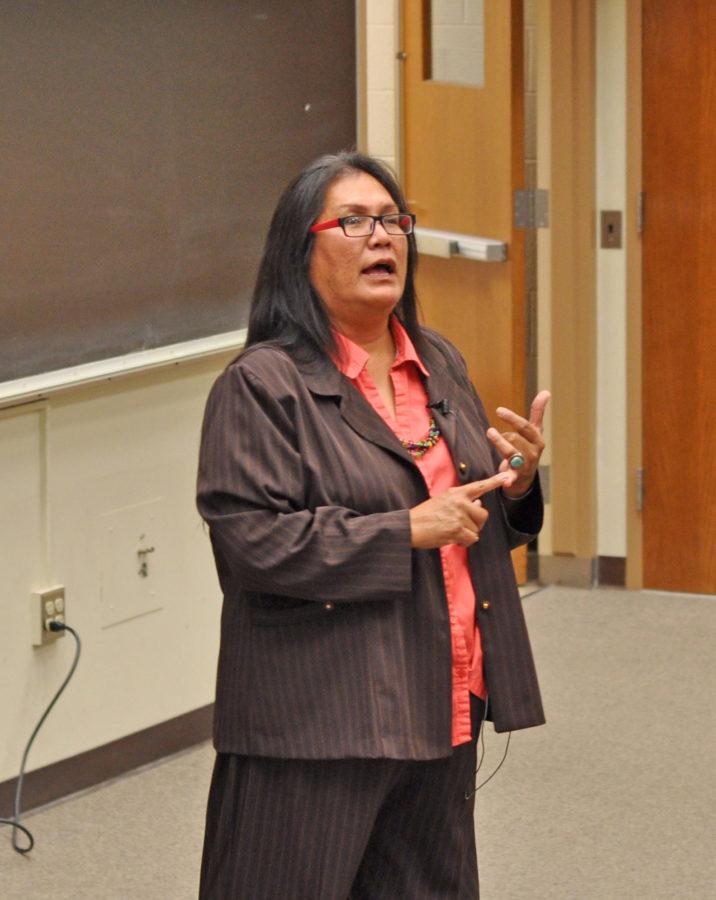Trudie Jackson speaks on awareness for Native American LGBT health care
Trudie Jackson (Navajo), a Graduate Student in American Indian Studies-Tribal Leadership & Governance of Arizona State University, speaks about her experiences of a transgender Native American to a group of students at the University of Illinois Urbana-Champaign on Novemeber 3, 2015.
November 4, 2015
Jackson, graduate student in American Indian Studies and Tribal Leadership and Governance at Arizona State University, is an advocate for proper health care rights for LGBT identifying Native Americans and spoke about the challenges they face at the Medical Services Building on Tuesday.
Native American and Alaskan Native health care has long been carried out by the Indian Health Services (IHS). But those who identify as LGBT have not received the same level of health care services as those who don’t identify as LGBT.
Jackson represented the LGBT-identifying Native American community at the American Indian Physician Conference where she gave a presentation to the IHS director.
“I asked: When is the IHS going to take strong, critical matters into addressing the increasing number of HIV/AIDS patients in Native Americans within the country?” Jackson said. “If it impacts your family, your immediate family, will it finally be addressed? Because we are losing American Indians who are asking for help with HIV/AIDS.”
Get The Daily Illini in your inbox!
Another barrier to the Native American LGBT community is the concept of having access to proper healthcare and outlets to speak and raise awareness in urban versus rural environments, as many of these sessions are in Washington or IHS headquarters in Maryland.
“LGBT Native Americans or Alaskan Natives may not have the money or the resources to travel to the East Coast to have their voices heard,” Jackson said. “I’m hoping that with these sessions that the IHS will seriously look at developing and implementing LGBT clinics at all IHS sites across the country, so LGBT care can be provided to all American Indians and Alaskan Native.”
Jackson also voiced how at times she is the only Native American LGBT representative working with community partners in Phoenix on raising awareness.
“If you’re sincere about your community, raise your voice so your population is heard because you may be the only voice in the room for your community,” she said. “But that voice is powerful because when you get that funding for your population, you’re doing a service to your community to help get outreach and prevention education for the population that you’re advocating for.”
She also spoke about the importance of frontline workers being sensitive and open-minded when reaching out to Native American communities with LGBT individuals.
“The frontline workers, the people that do community outreach, are the ones that really hold the key to the community because they interact with the community,” Jackson said. “When they build that trust with the LGBT community individuals will share that name within their circle.”
Similarly, Jackson stressed the importance of proper training for health care providers in interacting with LGBT patients.
“When you walk into a patient’s room and they may appear different compared to what’s on the chart, always ask how they would like to be addressed,” Jackson said. “That is the key because that will make the patient aware that you are open-minded and that you are non-judgmental in the LGBT community.”







